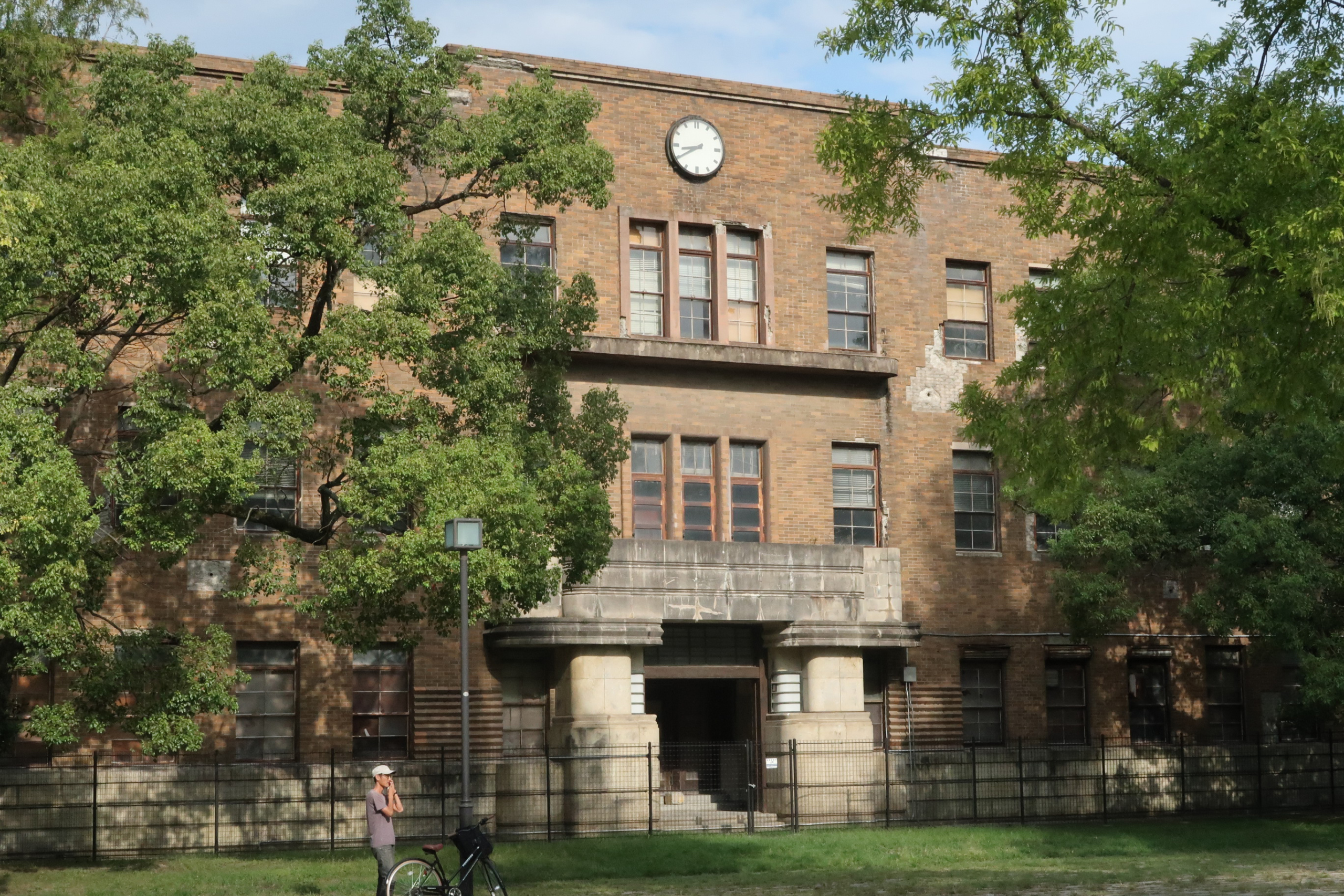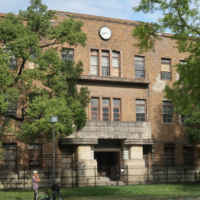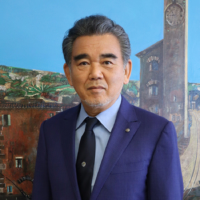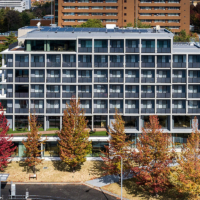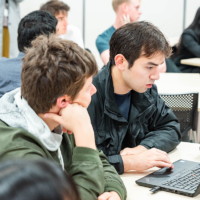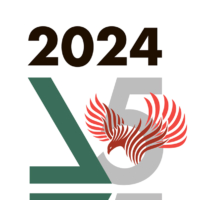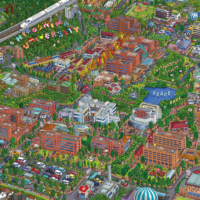Hiroshima University was founded in 1949 in the first city in the world to suffer an atomic bombing. In the spirit of pursuing peace, HU’s mission is to contribute to the well-being of humankind by realizing a free and peaceful international society.
This spirit is reflected in this national university’s efforts both on campus and in society. Since the Russian invasion of Ukraine, the university has conducted on-campus fundraising and hosted evacuee students.
For campus and community
In further support of the institutional mission, freshmen are required to take peace-related classes to deepen their thinking and understanding of peace from various perspectives, including war and conflict, nuclear abolition, poverty and hunger. The “Peace Lecture Marathon” launched in 2018 presents lectures on peace by government representatives and ambassadors of various countries.
In the face of the COVID-19 pandemic, we were one of the first national universities to conduct mass vaccinations of students. The university had been preparing to start utilizing online solutions for education, which allowed classes to shift smoothly and swiftly online during the pandemic. Hiroshima was also one of the first universities in Japan to set up an emergency student aid fund, providing ¥30,000 to 1,820 students in need.
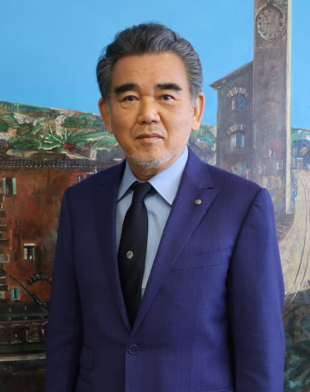
“This was made possible thanks to the funds totaling about ¥66 million donated by our alumni and faculty members, as well as residents of Hiroshima. We used the remaining funds to provide 147,000 breakfasts to students for ¥50,” said HU President Mitsuo Ochi.
During the torrential rainstorm and subsequent flooding disaster in western Japan in July 2018, the university immediately sent out emergency messages containing information useful to international students, such as damage reports in affected neighborhoods and revised class and bus schedules. Halal meals were also provided using university funds and donations raised on campus.
Off campus, HU formed a disaster investigation team five days after the rainstorms began that later became the Hiroshima University Resilience Research Center.
Summit, SDGs on agenda
Another recent example of HU’s off-campus contributions is the effort it has been making to ensure the success of the G7 Summit in Hiroshima. Ochi is serving as a director for education in the Citizens Council for the Hiroshima Summit, and as chairperson of a separate council of 21 universities in the prefecture that was formed to support the citizens’ council.
“We have organized various events to boost momentum toward the G7 Summit, including a symposium on food security which was held on April 22,” Ochi said. He expressed hope that the world leaders who attend the first G7 Summit to be held in an atomic-bombed city will visit the Hiroshima Peace Memorial Museum, feel the horror and misery of nuclear weapons and disseminate the value of peace.
“We think that the most important one of the United Nations’ 17 sustainable development goals is goal 16, ‘Peace, Justice and Strong Institutions,’ because it serves as the basis for all the other goals,” Ochi said. HU established the FE (Future Earth)/SDGs Network for Education and Research on Peace and Sustainability in 2018 to enhance research and education and form ties with researchers, businesspeople and the general public so it can serve as a center for solving issues related to key areas of the SDGs, Ochi explained.
Just as the SDGs look to a sustainable future from a long-term perspective, HU places importance on having a long-term strategy to foster human resources who will support the sustainability of the world for the next 100 years. This view is embodied in HU’s commitment to become a “University of World-wide Repute and Splendor for Years into the Future,” which is stated in its plan for the first decade of its 100-year Splendor (Sustainable Peace Leader Enhancement by Nurturing Development of Research) Plan 2017.
The plan’s mission states, “By establishing a new philosophy of peace science — Science for Sustainable Development — Hiroshima University will contribute to the realization of a diversified, free, and peaceful global society.”
Some of the efforts that HU has been making to achieve this are accommodating various external educational and research bodies on campus, relocating some programs outside the main campus, and establishing new on-campus facilities.
Diversified outreach
In August 2022, the Thunderbird School of Global Management-Arizona State University-Hiroshima University Global Initiative was launched. The business program allows students to study both at the HU campus and ASU campus.
The Radiation Effects Research Foundation, a U.S.-Japan joint research body, will be relocated to HU’s Kasumi Campus where its Research Institute for Radiation Biology and Medicine is based. “We aim to promote the collaboration of the two research bodies to achieve world-leading research in the field of radiation,” Ochi said.
The Faculty of Law and related programs have been moved to the Higashi-Senda Campus, which is closer to central Hiroshima. Ochi described the purpose of this move as facilitating closer ties between students and legal professionals, as well as legal and administrative bodies.
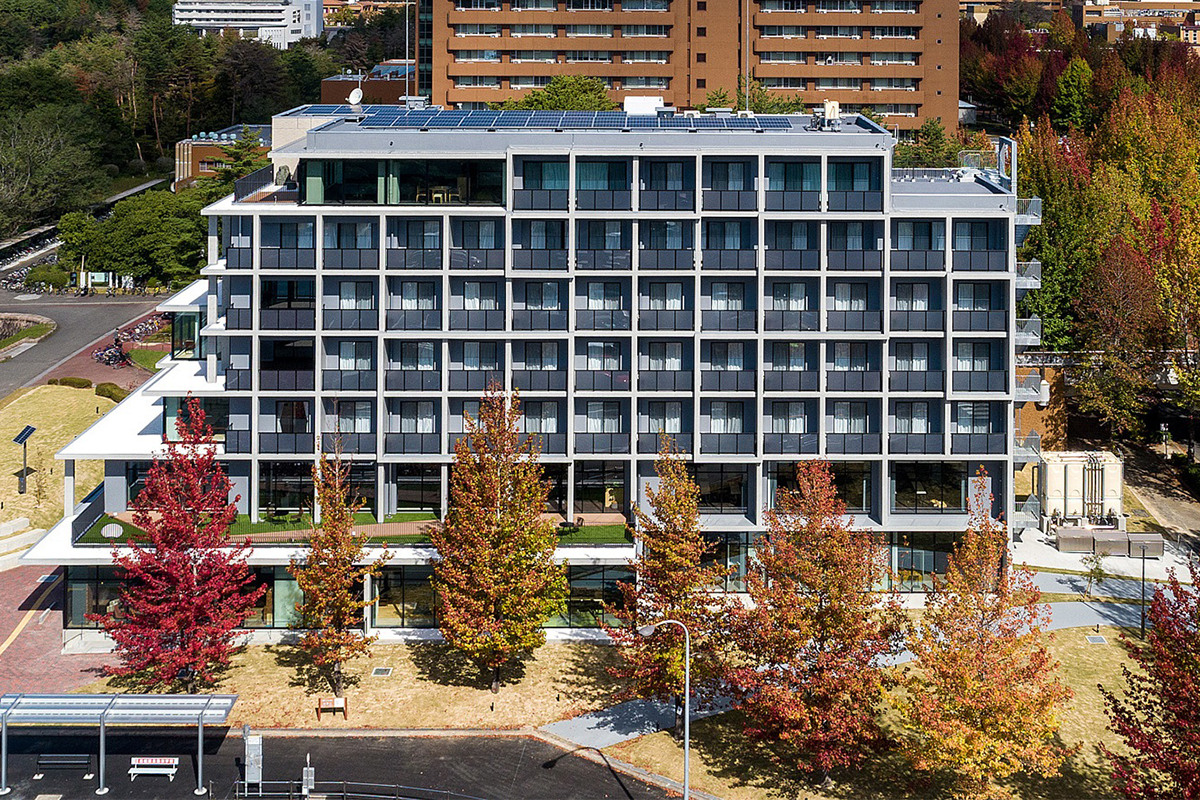
The Phoenix International Center Mirai Crea, an on-campus facility that serves as a hub for international, regional and academia-industry cooperation and collaborations, was opened in 2021 based on the idea that engagement with both international and local players is critical for the university’s sustainability.
There are also various new efforts that make HU unique. One of them is the International Institute for Sustainability with Knotted Chiral Meta Matter, which was selected under the World Premier International Research Center Initiative by the Ministry of Education, Culture, Sports, Science and Technology last year.
“Research in this field will contribute to new green technologies to solve issues related to depletion of energy resources, and to medical innovations to cure refractory diseases. Some of the findings by our researchers are already in the process of development and commercialization for a super insulation material with high energy-saving effects,” Ochi said. The institute plans to work with leading experts from research institutes from around the world, such as the University of Cambridge in the United Kingdom, the Massachusetts Institute of Technology in the United States, and the Max Planck Institutes in Germany.
In 2018, the Frontier Development Program for Genome Editing was chosen as one of the doctoral programs for World-leading Innovative and Smart Education by the ministry.
Entrepreneurial education is another area HU focuses on. It launched the Hiroshima Entrepreneurship Program in 2014 to support startups that use research achievements and nurture human resources that can create new businesses in existing companies. An internship program is mandatory for all freshmen, and some of the practical entrepreneurial courses offered by HU in collaboration with the municipal government and local chamber of commerce are available to both students and nonstudents who aspire to become entrepreneurs. In fact, entrepreneurial education became a part of the curriculum for all faculties in 2022.
With the pursuit of peace at the core of its education and research, HU will continue to evolve and contribute to communities at home and around the world.
Collaboration network has wide reach
Hiroshima University has over 10,600 undergraduate students studying across 12 faculties, from the School of Letters to the School of Informatics and Data Science.
The university’s START (Study Tour Abroad for Realization and Transformation) Program is designed to support undergraduates who wish to study overseas by funding roughly 30% to 40% of the expenses involved. The university also offers the e-START Program, which connects HU students with their foreign counterparts online so they can participate in lectures and workgroups together, and Collaborative Online International Learning, a program that involves six universities in Africa, including in Egypt and Zambia.
In 2018, the Department of Integrated Global Studies was established in the School of Integrated Arts and Sciences, where all classes from the first year to the fourth year are taught in English.
To further enhance students’ English proficiency, HU has been providing additional support that includes coverage for TOEIC test fees. As of December 2022, the ratio of undergraduates who scored higher than 730 on the TOEIC — HU’s threshold for studying abroad — was 21.4% overall, and 41.4% among medical students.
HU has four graduate schools — the Graduate School of Humanities and Social Sciences, the Graduate School of Advanced Science and Engineering, the Graduate School of Integrated Sciences for Life, and the Graduate School of Biomedical and Health Sciences — which, together with dozens of laboratories and research institutes, support advanced study in many fields. Joint degree programs are available between HU and the University of Graz in Austria, and Leipzig University in Germany.
Some of the prominent research bodies and projects HU is proud to be associated with include the International Institute for Sustainability with Knotted Chiral Meta Matter, a center for academia-industry collaboration in bio-digital transformation that focuses on genome editing, a field that HU is leading in Japan, and a project to unravel the effects of music on brain science, which was selected as one of the Moonshot Research and Development Programs by the Japan Science and Technology Agency.
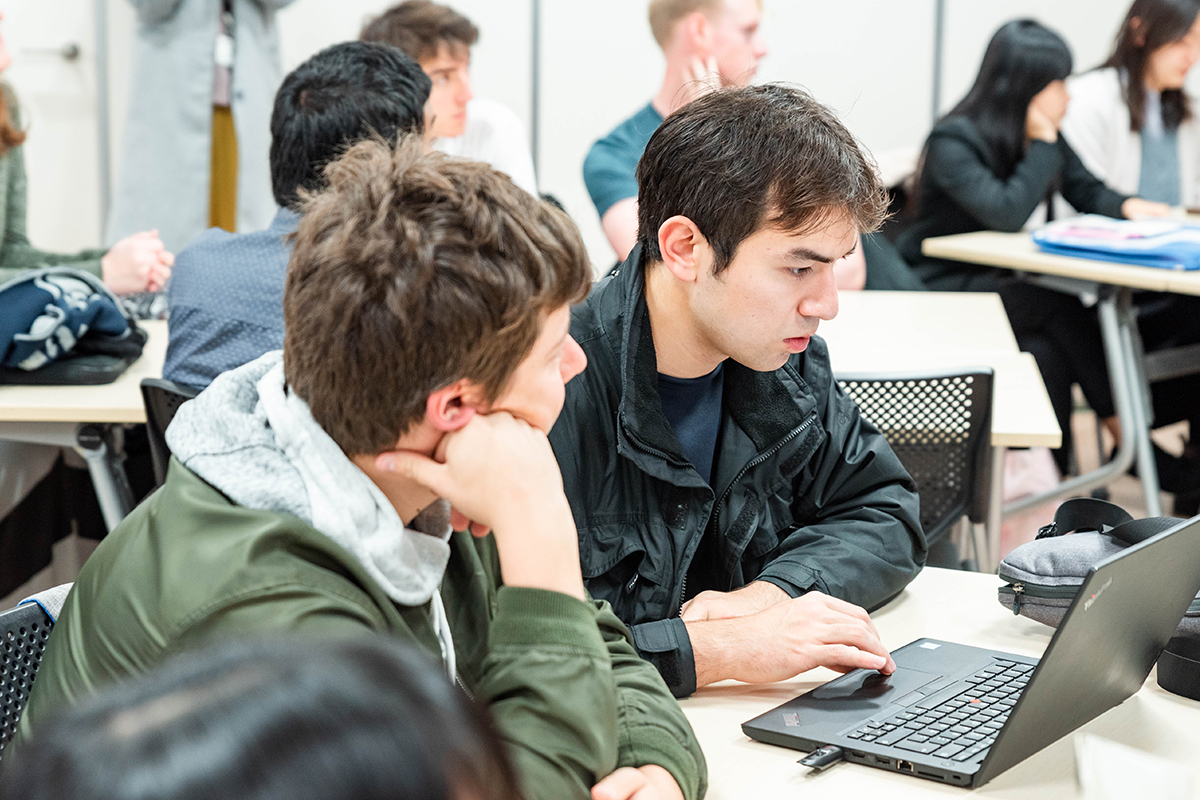
For foreign students, HU established the Morito Institute of Global Higher Education, which focuses on teaching Japanese language and culture, in 2018. Among its offerings are the 3 + 1 Program, a one-year course that accepts students who have completed the first three years of undergraduate study at foreign universities. A branch school was set up in Capital Normal University in Beijing in 2020, allowing students to take various Japanese courses while in China.
Plans to accept scholarship students from Indonesia and design a curriculum and teaching team from HU to staff a new university in Egypt are also underway.
HU has 23 overseas offices and 399 partnerships with 355 institutes in 56 countries. Even with the impact of the COVID-19 pandemic, 1,638 students from 84 countries are currently studying at HU.
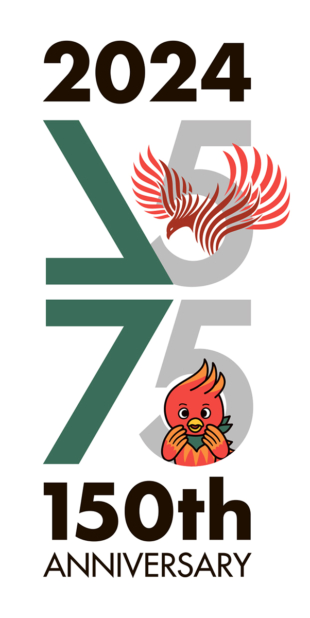
As an institution with 75 years of history under former names and almost another 75 since it became Hiroshima University, the school has maintained its deep roots in the community and offered multiple stakeholder opportunities in human resources development, research and development and the creation of new industries and businesses.
In 2021 alone, HU started 384 joint research projects and commissioned 345 research projects. Among the results of our joint research with local companies are Setokomachi, a sweet made by Nishikido, My Flora, a probiotic drink produced by Nomura Dairy Products Co., and Chocolat Mill, a stone cacao milling tool made by Inoue Stone Mason Co. Many other products, such as an antibacterial spray and liquid hand soap containing tannin from astringent persimmons, have been created based on collaborative research with companies across the nation.
The Town and Gown Initiative launched in 2021 is one example of how we engage with communities. Through this initiative, HU and local governments work together on regional issues using shared academic and administrative resources. Since its establishment, the university has hosted a number of events, including seminars on topics spanning the fields of technology, business and sustainability in collaboration with both the public and private sectors.
The Hiroshima Love It Consortium is an open innovation platform that promotes industry-academia-government-finance collaborations in the area. Under HU’s leadership, several local universities joined, and the number of corporate and individual members reached 50 and 200, respectively, within a year of its establishment in 2021, providing collaboration opportunities with enterprises, open online lectures, internship programs, support for business startups, and international exchange.
In the same year, HU signed a comprehensive agreement with Sumitomo Corp. and the city of Higashihiroshima to realize a smart city based on the concept of Society 5.0 — a sustainable and inclusive socioeconomic system supported by digital technologies. Based on this collaboration, HU declared an ambitious target of achieving net-zero by 2030 on its campus.
Since last year, HU has also been working with eight Higashihiroshima companies from various industries under the new Hiroshima University Smart City Co-Creation Consortium to implement new technologies on its main campus. These results will be utilized to apply those technologies to the surrounding neighborhood and contribute to the sustainability of the region.
The sustainability efforts made by HU are compiled in the Hiroshima University SDGs Report 2021. According to Impact Ranking 2022, which assesses contributions by universities across the world in achieving the U.N. sustainable development goals published by the British journal Times Higher Education, HU ranked third in Japan.
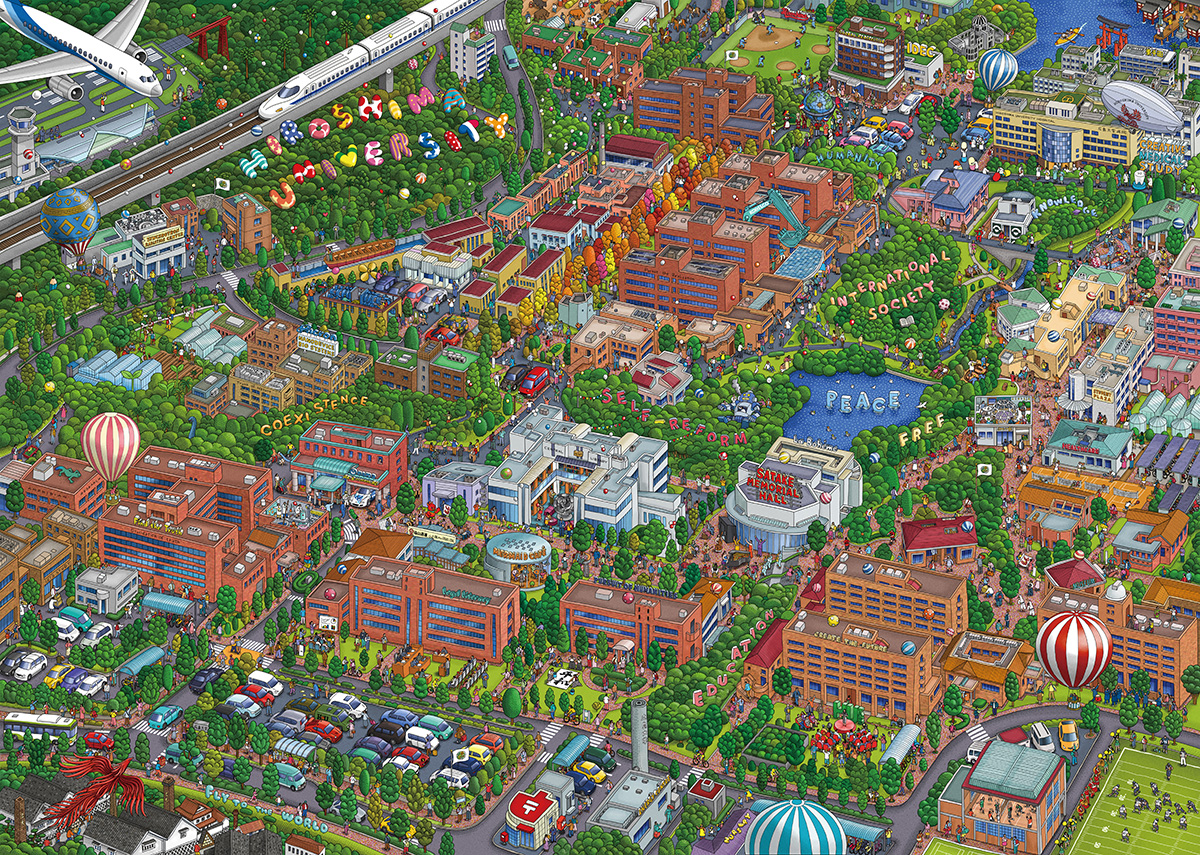
This page is sponsored by Hiroshima University.
Hiroshima University

Address: 1-3-2 Kagamiyama, Higashi-Hiroshima
Tel: +81 (0)82-422-7111
E-mail: [email protected]
URL: https://www.hiroshima-u.ac.jp/en



